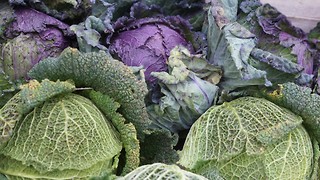A rough guide to travel writing
travels across Europe and finds there’s nowhere so confusing as home
The brakes squealed as the night train lurched to a stop in the mountain railway station, sending bleary-eyed travellers after their rucksacks and excited conductors waving flags like the triumphant heralds of an ancient army. Tired and hungry, I was only dimly aware of the general confusion of the scene as I raced on to the platform and the train that would return me to Warsaw and, ultimately, England. The station’s moonlit ambience was surreal in the extreme. It all felt like far more than two weeks had elapsed since the beginning of this journey across Poland, when I felt completely free and wonderfully unprepared for the challenge ahead.
Sent to a nation on the edge of Europe by ‘Rough Guides’ travel-books in order to write a chapter for their new European edition, I had travelled here on what seemed like the dream summer job. Well, perhaps, but surely not one for the faint of heart: a mere fortnight to explore the famous towns, indulge in the local food, and embrace the ‘traditional customs’ before then encapsulating the workings of an entire nation into 5000 glib words, something to be perused by the bored backpacker as they flipped the pages between ‘Norway’ and ‘Portugal’. How can one come away from such an experience not feeling woefully inadequate?
I had crossed from the Baltic port of Gdansk in the north, through the rich Medieval trading towns and grand Teutonic fortresses of Silesia, past the pristine former royal capital of Krakow and the haunting Nazi death camp of Auschwitz before finally progressing to the spectacular Tatra mountains that line Poland’s southern border. Now I was on my way home, my notebook crammed with a daunting string of disparate thoughts and impressions on a nation that had charmed, surprised and in many respects baffled me during my fortnight’s stay.
Images of striking ship workers at Gdansk flooded the world media in the 1980s and acted as the harbingers of the disintegration of communism in Eastern Europe. After almost two centuries of foreign domination, the nation's return to democracy at the end of the decade has brought new freedoms and an economic revolution, but the adjustments have proved difficult for many and contradictions abound. Looking out from my train window on my travels across the countryside, I would see new cars vying for space with tiny, communist-era models and horse-drawn carts, while the role of the Catholic Church was clearly as important as ever, with its presence visible in Baroque buildings, roadside shrines and the many images of the late Pope John Paul II, the former Archbishop of Krakow.
While many of these country villages can are lovely in themselves, they hide a disturbing level of unemployment and poverty. Young workers, faced with the option of emigrating to either Polish cities or the West in search of work, frequently choose the latter. Indeed, it is the emigration to Britain in particular that has produced one of more popular jokes currently doing the rounds in Warsaw:
“Statistics show four out of ten young Poles live in stress. Where do the rest live?”
“London”.
As I came to the end of this whistle-stop tour, I reflected that my visit to Poland had offered an insight into a wonderfully vibrant if often unfamiliar side of Europe. A visit there can only expand one’s view of a continent that many Britons frequently reduce to those well-trodden tourist routes of Provence or the Spanish Costas.
The task of capturing the essence of a country in such a short time brought with it an anxiety that I had to wrestle with as I stepped on to the station of each new town. What should I be looking for and telling people? What is my purpose here? What can I possibly write that others (not least Michael Palin in his TV Series, ‘New Europe’) haven’t covered before? Yet, as the ex-Python himself said of travel-writing, “this way madness lies”. In the end I felt it was best not to be too self-conscious; far better to be myself, to treat people and places with an open mind and to try to learn a little whilst having some fun. That is, after all, why many of us go on holiday. On my return I scribbled away with the earnestness of a NatSci on the eve of finals, and, within a few weeks, completed the chapter to my editor’s satisfaction. It was a joyful, even cathartic moment.
Such an experience, you might have thought, would make writing a description of Cambridge quite simple. Surely the diversity that one encounters in a nation on the cusp of the momentous changes sweeping the old Eastern Bloc could never be replicated in a sleepy backwater of East Anglia? How mistaken you might have been. Consider, then, the multiplicity of events, rumours and opportunities, the convergence of the arcane and the ground-breaking that occur even in this University town. Think of chatter about the Cambridge spies, the bio-tech factories of ‘Silicon Fen’ that are currently springing up around town. The truth is that the world is changing, not just in some corner of Eastern Europe but for all of us, perhaps not as dramatically but just as surely.
Mike Kielty
 News / Tompkins Table 2025: Trinity widens gap on Christ’s19 August 2025
News / Tompkins Table 2025: Trinity widens gap on Christ’s19 August 2025 News / Government pulls £277M in funding for Cambridge sewage works relocation25 August 2025
News / Government pulls £277M in funding for Cambridge sewage works relocation25 August 2025 Comment / Who could possibly want more exams?25 August 2025
Comment / Who could possibly want more exams?25 August 2025 News / Over 200 new homes approved on edge of Cambridge23 August 2025
News / Over 200 new homes approved on edge of Cambridge23 August 2025 Interviews / Roger Mosey’s farewell to Cambridge21 August 2025
Interviews / Roger Mosey’s farewell to Cambridge21 August 2025









